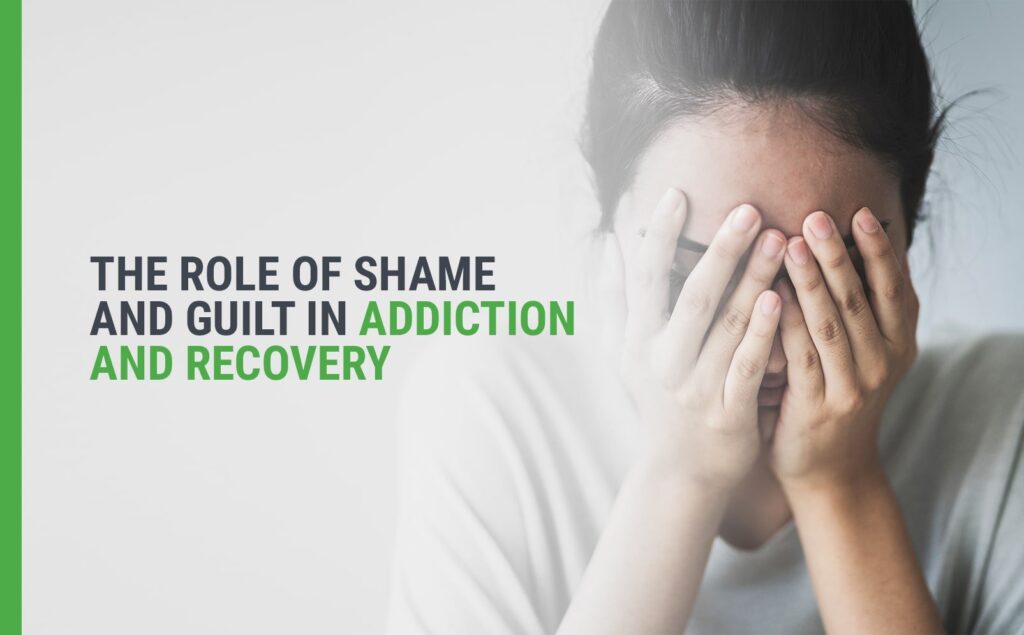Dealing with Guilt and Shame in Addiction Recovery

When someone begins the journey of addiction recovery, emotions like guilt and shame can be overwhelming. These feelings often affect the recovery process and may even lead to setbacks.
At Prayas Sewa Samiti, known as the Best Nasha Mukti Kendra in Dehradun, we recognise how important it is to address guilt and shame in addiction recovery early on. This blog will explore what guilt and shame in addiction recovery are, how they impact healing, and ways to manage these emotions effectively.
What Are Guilt and Shame in Addiction Recovery?
Guilt and shame in addiction recovery are emotional states that many individuals face after struggling with substance abuse. Though related, guilt and shame differ:
-
Guilt is feeling bad about specific actions or behaviours. For example, a person may feel guilty for hurting family or lying during addiction.
-
Shame is a deeper feeling that affects self-worth, believing you are a bad or unworthy person because of your addiction.
Both emotions are common during recovery but can interfere with progress if left unaddressed.
Why Guilt and Shame in Addiction Recovery Matter
Experiencing guilt and shame in addiction recovery can create barriers that prevent a person from fully healing. These emotions often lead to:
-
Low self-esteem and self-doubt which can make recovery harder.
-
Isolation and withdrawal, where individuals avoid friends or family.
-
Increased risk of relapse, as guilt and shame may trigger substance use to escape painful feelings.
Understanding these effects is crucial to overcoming them and supporting long-term recovery.

How Guilt and Shame Develop in Addiction
Guilt and shame in addiction recovery usually stem from the consequences of substance abuse. People often regret the harm their addiction caused to relationships, jobs, or health.
Society’s stigma around addiction also fuels shame, making individuals feel judged or rejected. This social judgment can deepen feelings of unworthiness and discourage people from seeking help.
Recognising Guilt and Shame in Yourself or a Loved One
Recognising guilt and shame in addiction recovery is the first step toward healing. Common signs include:
-
Constant negative self-talk or thoughts like “I’m a failure.”
-
Avoiding social situations or distancing from loved ones.
-
Hiding feelings or lying about progress in recovery.
-
Feeling undeserving of forgiveness or second chances.
If you notice these signs in yourself or a friend, it’s important to take action to address them.

Strategies to Manage Guilt and Shame in Addiction Recovery
1. Practice Self-Compassion
Self-compassion is about treating yourself with kindness instead of harsh judgment. When guilt and shame in addiction recovery arise, remind yourself that addiction is a health condition, not a moral failure.
Replace critical thoughts with encouraging words like, “I’m working to improve,” or “I deserve a chance to heal.” This shift can reduce negative emotions and support emotional stability.
2. Talk Openly About Feelings
Talking about guilt and shame in addiction recovery helps release their hold. Confide in trusted friends, family, or counsellors who understand addiction.
Support groups can also offer a safe space for sharing experiences. Knowing others face similar feelings reduces isolation and fosters connection.
3. Focus on Taking Responsibility
Taking responsibility for past actions without harsh self-judgment is vital. This means acknowledging mistakes and making amends where possible, but not allowing guilt to define your identity.
By owning your recovery journey and choices, you move forward with empowerment rather than defeat.
4. Engage in Mindfulness and Relaxation
Mindfulness exercises, such as deep breathing and meditation, help manage overwhelming guilt and shame in addiction recovery. These practices calm the mind and increase awareness of thoughts without judgment.
Regular relaxation techniques reduce stress, which often worsens negative feelings.
5. Set Realistic Goals
Setting small, realistic goals builds confidence and reduces feelings of shame in addiction recovery. Celebrate achievements, no matter how minor they may seem.
Progress helps replace shameful feelings with pride and motivation to continue healing.
6. Seek Professional Support
Professional counselling is key to managing guilt and shame in addiction recovery. Therapists use techniques like cognitive-behavioural therapy (CBT) to help change negative thought patterns.
At Prayas Sewa Samiti, the Best Nasha Mukti Kendra in Dehradun, trained counsellors provide compassionate care tailored to individual needs. Professional support strengthens your ability to cope with emotions and stay sober.
The Role of Family and Friends in Addressing Guilt and Shame
Family and friends also play a vital role in helping someone cope with guilt and shame in addiction recovery. Providing unconditional support, encouragement, and understanding reduces feelings of isolation.
Avoid blame or criticism and instead offer empathy and hope. Learning how to support loved ones positively impacts their healing process.
Preventing Guilt and Shame from Triggering Relapse
Because guilt and shame in addiction recovery can lead to relapse, it’s important to develop healthy coping strategies. These include:
-
Reaching out for support during tough times.
-
Engaging in hobbies and activities that build self-esteem.
-
Practising self-care routines like exercise and sleep hygiene.
-
Avoiding people or situations linked to past substance use.
These habits reinforce recovery and protect against relapse triggered by negative emotions.
Conclusion
Dealing with guilt and shame in addiction recovery is challenging but essential for long-term success. These emotions can weigh heavily, but with the right mindset, support, and strategies, healing is possible.
If you or a loved one is struggling with addiction and the emotional burden that comes with it, seeking help from professionals is important. Prayas Sewa Samiti, regarded as the Best Nasha Mukti Kendra in Dehradun, offers comprehensive treatment and emotional support to guide you through recovery.
Remember, addiction does not define your worth. With care, patience, and support, you can overcome guilt and shame in addiction recovery and build a healthy, fulfilling life.
Приглашаем посетить наш интернет магазин https://misterdick.ru/ по
продаже дженериков в Москве с быстрой доставкой по МСК в день заказа.
Высокое качество дженериков производства Индии в наличии для покупки.
Так же отправляем заказы во все регионы почтой России